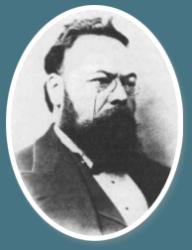Now our allopathic friends must do as they did in regard to tuberculinum, viz: admit the efficacy of small doses and with it the truth of the homoeopathic law, or officially drop the thyroid business, as they did with tuberculinum. They will go out of the thyroid business in time confused by their own work, because without the light of the homoeopathic law it must end in confusion. So after all Paracelsus was right in recommending his lung-to-lung and kidney-to-kidney homoeopathy, and the dignity of the organ has risen to university rank and fellowship.
What I in this volume am really concerned with is the importance of the organ, its complete autonomy and hegemony, as bearing on the diseases of the liver.
The functions of the liver are too large a chapter for me now to touch upon, but the newest data of science in regard to goitre and thyroid feeding bring out into a clear light these points:-
1. That the organ in the organism does indeed possess not only autonomy but hegemony, i.e., the organ is an independent state in itself and in and on the organism exercises an important influence.
2. That both a plus and a minus of a given organ results in disease of the organism.
3. That the organ-to-organ homoeopathy of Paracelsus is a scientific fact.
And we thus see that organ-remedies by restoring the disturbed organ to health cures the organism itself. I have for years fought for the recognition of the organ in the organism from the clinical side and maintained that organopathy lies at the very root of homoeopathy in its simplest and most elementary form, and now that orthodoxy is officially proclaiming ” organotherapy” (Paracelsic organ-to-organ homoeopathy) and now that physiologists firmly and faithfully believe that all the glands have a creative, formative, directing, controlling, nutritive, antitoximal internal secretion, surely I need fight no longer the cause of the organ in the organism.
By the way, it seems to me that Hale’s Law of Dose is amply confirmed by the clinical results of organotherapy, the law may not be of universal application but it and it only, explains many of the phenomena of homoeopathic cures. Iron produces plethora and anaemia and who amongst us can deny the splendid cures of anaemia by iron in full dose? We all see them daily. And who would for a moment think of using full doses of iron in plethora? and certainly we use with much advantage infinitesimal doses of iron for many symptoms of plethora.
We may say that the full doses are nutritional only, but it seems to me that that is not all. The never facts of organotherapy, presently to come may, perhaps, clear the matter up.

